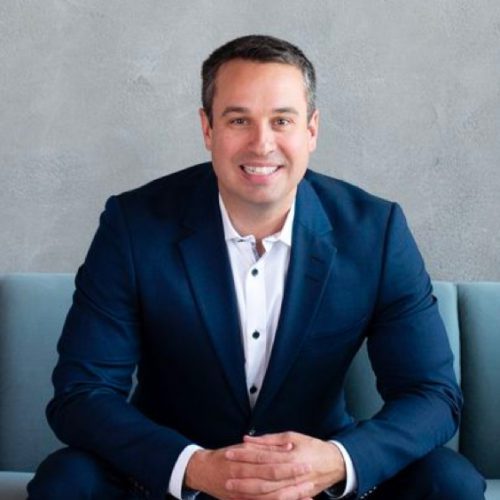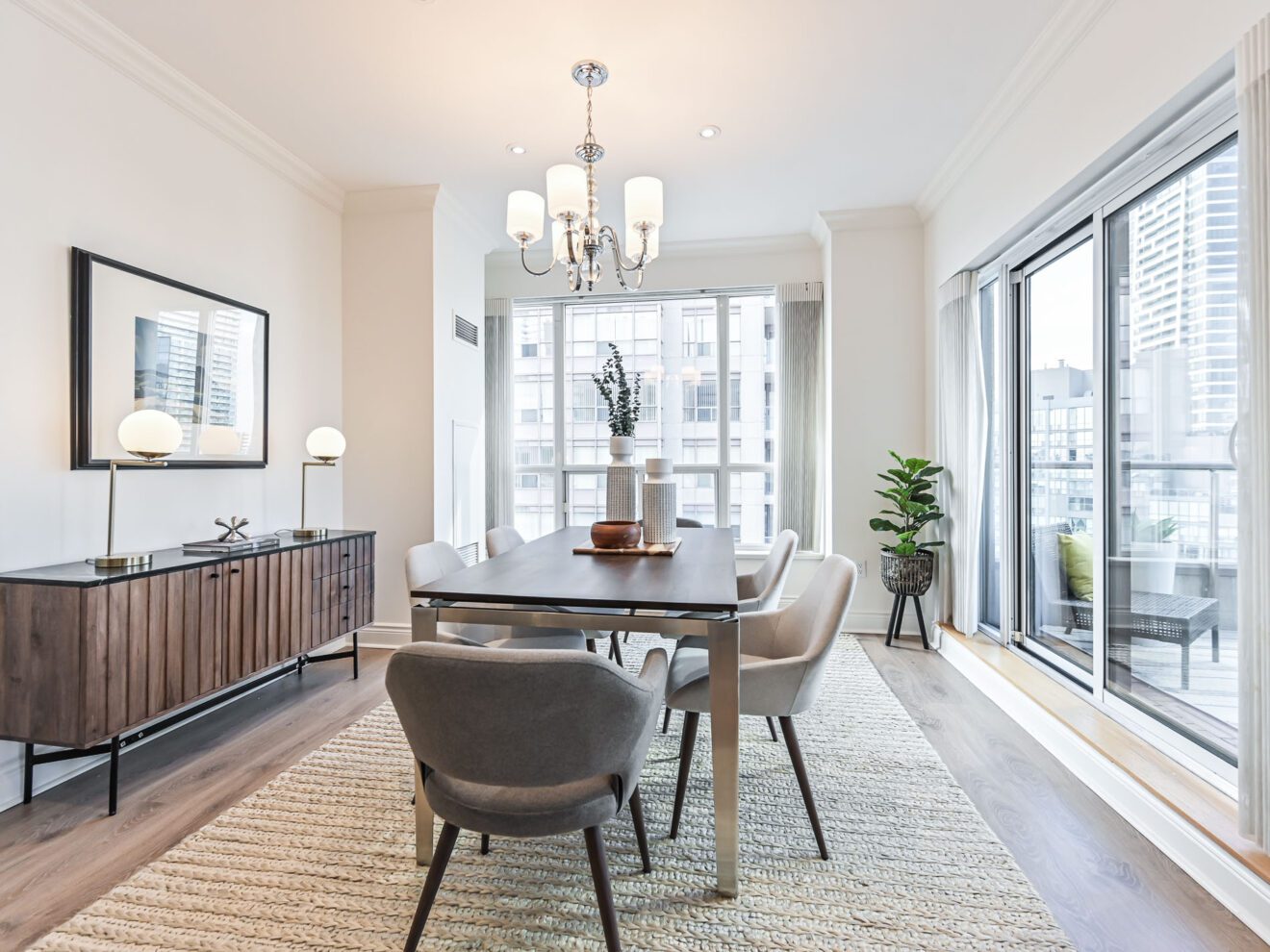If you’ve been in the real estate market at any point in the last twenty years, you’ve almost certainly come across a real estate “buzzword” or two.
You know the ones, right? The words used on the MLS listing, or the phrase used in an advertisement.
Perhaps it’s a term you noticed in a design magazine? Or maybe it’s a catchy quip that a friend used.
Some of these real estate buzzwords are so overused that they’ve lost all meaning, whereas others can accurately convey a message in short order.
“Boutique” is a term that I loathe seeing as it should refer to a small, quaint, 12-storey condominium, but Realtors generously splash this buzz-word around to describe 25-storey monstrosities, even though there’s nothing boutique about it.
When I’m writing the MLS description for a single-family home that has everything, I like using the term “box-checker” as it’s both literal and metaphoric at the same time, at least for those that have an actual checklist!
“Custom-home” is always used for homes that aren’t custom, and “sun-drenched” is used for condos that are anything but. “Diamond in the rough” makes me think the house is a pile of garbage, and words like “prestigious” and “dream home” wouldn’t be used for actual prestigious dream homes, because those houses would speak for themselves.
But these buzz-words are all used in marketing. They’re harmless!
Want to get more honest real estate advice? Listen to The Last Honest Realtor Podcast right here!
Harmful Buzzwords in Real Estate
There are, however real estate “buzzwords” that are harmful, or at least that’s the impression that they give, and those are the words I want to discuss today.
Remember the first time you heard the phrase “knob-and-tube wiring?” You probably wondered what the heck this was, and had some sort of visual image in your mind, but over the years, this has become a term that raises red flags galore, even though it’s not that big an issue.
Sure, we would rather have copper wiring in our homes than knob-and-tube, but removing knob-and-tube wiring is simple and it’s not cost prohibitive. The presence of knob-and-tube wiring shouldn’t be enough, on its own, to deter a potential buyer.
Some time in the early 2010’s, we were first introduced to the phrase “Kitec plumbing.” This became a dangerous buzz-word in real estate circles that sent buyers and agents heading to the hills! As with knob-and-tube wiring, somebody, somewhere, decided that these older building materials were dangerous, and as a result, insurance companies either jacked up premiums, or stopped insuring houses and condos with the materials altogether.
At one point or another, hundreds upon hundreds of downtown Toronto condos pulled all their Kitec plumbing from the underbellies of the buildings and replaced the piping with copper, plastic, or PVC.
The real estate industry can get a little complicated sometimes. Check out these blogs for more clarity on commonly misconstrued real estate questions:
- Do You Really Need a Buyer’s Agent?
- Can You Fire Your Realtor if it’s Not Working Out?
- Why Hiring Your Friend to Sell Your Home Might Not Be a Good Idea
The Misunderstood Real Estate Buzzword of All Time
But perhaps the biggest real estate buzzword in the world of condominiums, and the one that’s been around the longest is “special assessment.”
But you know what?
There’s nothing special about it.
It’s actually quite routine, since special assessments happen all the time.
When I close my eyes and I think of somebody saying “special assessment,” I picture an entire room full of people squirming in their chairs, shifting their weight to the other foot, or uncomfortably wincing while trying to remain calm.
That is how bad the real estate buzz word “special assessment” is in our world.
But should it be?
Consider any condominium in the downtown core, just for a moment. Consider how many people own units in the building and consider how much money is collectively pooled in the form of monthly maintenance fees.
Now, consider how much it costs to run the building on a day-to-day basis. There are staff, such as the concierge, cleaners, and property manager, and there are operational expenses such as gas, water, and electricity for the common areas.
Want to get real estate insights and advice delivered right to your inbox? Subscribe to our newsletter right here.
Enter: The Reserve Fund
If a building is well-managed, then the money collected in the form of maintenance fees can cover the expenses, and keep a portion over to put in the reserve fund.
That’s how most buildings operate, right?
But what happens when there’s a major repair, such as a $700,000 cost to reinforce a bulging underground wall in the parking garage, or to replace all the old windows in a 35-year-old building?
Well, if a condominium has a $4 Million reserve fund, then perhaps that $700,000 can simply be drawn from the fund, and voila!
But what if the Board of Directors decides that it doesn’t make sense to draw $700,000 from a smaller reserve fund of, say, $1,100,000?
What happens then?
Well, a special assessment, of course!
And in a condo with 350 units, this works out to $2,000 per unit.
Easy, right?
Except, well, no. Special assessments are anything but easy, and in my experience, building residents go absolutely crazy when they’re issued.
My Experience:
I have lived in two condominiums, owned in seven, and been on the board of directors of one, and one of the things that’s always amazed me is how many condo owners refuse to accept that (gulp!) condos cost money to run.
I’ve also been amazed at just how cheap people can be!
$2,000 per unit? Yes, it’s real money, but it’s not $20,000. Who am I to tell others what’s a “little” and what’s a “lot?” Well, I guess I’m an experienced condo owner and a realist. But when it comes to the infamous buzz-word, “special assessment,” people often leave common sense at the door.
Just consider the condo-owner who has been living there for eight years, paying fees every month, and enjoying the building, the common elements, and the lifestyle. Now imagine when a major repair is needed in the ninth year and that condo owner is isused a special assessment for $2,000.
How is this the end of the world, exactly?
Special assessments are a part of condominium life and they always will be!
But I’m even more amazed when would-be buyers of a condominium swear off an entire building because of a special assessment; past, present, or future.
Learn more about buying, selling, and investing in Toronto condos with these posts next:
- What is the Purpose of a Condo Association?
- New Construction Vs. Resale Condo: What’s the Better Investment?
- How to Find a Good Investment Property
Buying a Condo with a Special Assessment
If you’re a condo buyer and you see that a building had a special assessment last year, then what’s the concern? That was in the past. The odds of another special assessment are low.
If you’re a condo buyer and you see that a special assessment has just been issued, then start negotiating! Don’t walk away from the condo that you love and want to call “home” just because of those scary words: ‘special’ together with ‘assessment.’
Last year, I was working with a buyer who was all set to submit an offer on a 1-bed-plus-den, 2-bathroom unit in King West for around $800,000. We obtained a copy of the condominium’s Status Certificate and read through, with almost everything being typical up to the point of those bad words “special assessment.”
The assessment was about $3,600 per unit and would be billed $240 per month for about 18 months.
My buyer freaked out. Well, to be fair, his lawyer freaked him out by saying, “You have to be careful here, there’s a big special assessment!”
Then his lawyer freaked out his father, who was involved with the transaction, and the father said, “We can’t buy into a building with a special assessment.”
Really?
Why not?
I offered them two very basic points to consider:
- The special assessment of $3,600 was less than half of one percent of the purchase price and was a non-issue if you looked at it on a relative basis.
- We were about to submit an offer and – wait for it – negotiate. What’s to say we couldn’t negotiate the special assessment with the seller?
If my client was ready to pay $800,000 for a condo that happened to have a $3,600 special assessment levied against it, then wouldn’t paying $796,400 for the unit, and having the seller pay the assessment, be the same result in the end?
In this case, we actually offered $780,000 and asked the seller to pre-pay the entire assessment at once, and we settled on about $785,000 with the assessment paid, so my buyer felt like he got a great deal.
And the crazy thing is: this building has below-average maintenance fees. Why the Board of Directors decided to issue a special assessment instead of taking money from the reserve fund or increasing fees, I don’t know.
You Have to Choose One…
But that raises another point: if you live in a building where you pay $400 per month in fees for your 600 square foot condo, and you’re faced with either a $3,000 special assessment or your fees going up to $450/month, you’d be crazy to hope for the latter.
High maintenance fees make a building less attractive to buyers, and as a condo owner, you’re better off paying a lump sum in the form of a “special assessment” than seeing your fees increase substantially.
Most condo owners don’t understand this, or don’t want to understand it because they don’t want to write a cheque, but trust me on this – there’s an inverse relationship between condo fees and desirability.
I’ve been in this industry for twenty years and I’m simply not afraid of the phrase “special assessment,” so if you’re a buyer, you shouldn’t be either.
Selling Your Condo with a Special Assessment
And if you’re seller who’s afraid that buyers won’t want to look at your unit when it’s listed for sale because there’s a special assessment, then simply pre-pay the assessment!
“Special assessment” has been a high-flying real estate buzz-word since I got into the industry twenty years ago, but it doesn’t have to carry a negative connotation.
Not if you do your homework in advance, put forth a plan of action, and above all – communicate as buyers, sellers, and agents.
Looking for more condo buying, selling, or investing advice? We’re always happy to help! Get in touch today by calling 416.642.2660 or email admin@torontorealtygroup.com.

Want More Insights From TRG Experts?
Sign up here to receive Insights Magazine delivered to you. This resource is full of market advice and industry intuition from our team and colleagues to keep you up-to-speed on the ever-changing Toronto real estate market.









